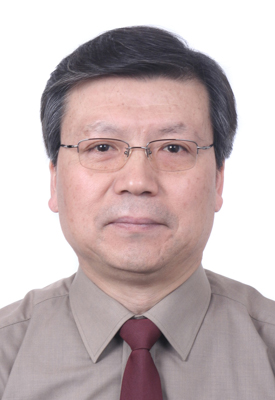
GCI Webinar: Confucius and Plato on Music Education
Time: 19:00-21:30, Tuesday, June 27
Location: GCI Amsterdam, Herengracht 141, 1015 BH Amsterdam
Presenter: WANG Keping is currently a fellow of Chinese Academy of Social Sciences (CASS), and professor of Beijing International Studies University (BISU)
Is music an indispensable part in an education system?
In most cases, the answer will be affirmative. Some might argue that music is conducive to intellectual development. Some might believe that music can touch their heart and soul. Besides seeing it from an individual perspective, what is the significance of music education in a society? Confucius said: “Music can secure the harmonious utterance of people’s voice(乐和民声).” Plato claimed: “Any musical innovation is full of danger to the whole state, and ought to be prohibited. When modes of music change, the fundamental laws of the state always change with them.”
In this webinar, Professor Wang will convene the two great thinkers, with a parallel comparison of their perceptions of music education and shed light on the multifold function of music as is embodied in the psychical, aesthetic ethical, pedagogical and political domains.
The webinar consists of three parts:
- 19:00-20:00: Lecture by Professor Wang
- 20:00-20:30: Interaction Section with Professor Wang
- 20:30-21:30: Social Drink (limited to in-office participants)
Click REGISTER to save a seat for free !
Two types of participation:
- offline in the GCI Amsterdam Office where you can communicate with the key note speaker in person
- attend online wherever you are by the link we will send to you one day before the webinar. Online interactions with the experts are possible as well.
NB: Offline seats: 30; online seats: 24. First come, first served.
------------------------------------------------------------------------------------------------------------------------
About the speaker:
WANG Keping (Keping WANG) is currently a fellow of Chinese Academy of Social Sciences (CASS), and professor of Beijing International Studies University (BISU). He was formerly a visiting fellow of St. Anne’s College of Oxford University, visiting professor of School of Philosophical and Historical Inquiry of Sydney University, honorary member of Olympic Center for Philosophy and Culture, and vice president of International Society for Universal Dialogue (ISUD). His main publications in English and Chinese include Rediscovery of Sino-Hellenic Ideas(2016); Moral Poetics in Plato’s Laws (2015); Plato’s Poetics in the Republic (2005, rev. 2014); Reading the Dao: A Thematic Inquiry (2011); Chinese Way of Thinking (2009); Spirit of Chinese Poetics (2008); Ethos of Chinese Culture (2007); and Aesthetics in Tourism (2007, rev. 2015).
About the topic:
Karl Jaspers claims that “A sociological parallel can be drawn between Confucius’ failure at the court of Wei and Plato’s failure at Syracuse, between the school of Confucius, which trained future statesmen, and the academy of Plato, which served the same purpose.” This can be justified by comparing the historical facts concerned during the “axial period.” In my observation, both Confucius and Plato were preoccupied with a kind of general education to develop good citizenship in particular even though one was directed to a clan community whereas the other to a beautiful polis. The discussion hereby focuses on how the two thinkers perceive music (yue in Chinese and μουσικη in Greek) as a primary source for art education that forms an elementary part of the general education per se. Accordingly, it looks into the multifold function of music as is embodied in the psychical, aesthetic ethical, pedagogical and political domains.

© 2026 Groningen Confucius Institute
Privacy statementGroningen Confucius Institute
Correspondence address:
Oude Boteringestraat 44
9712 GL Groningen
The Netherlands
Visiting address:
Oude Boteringestraat 42
9712 GL Groningen
The Netherlands
tel. +31 (0)50 - 36 34 688
info@confuciusgroningen.nl
 Share on Facebook
Share on Facebook Share on Twitter
Share on Twitter Share on LinkedIn
Share on LinkedIn